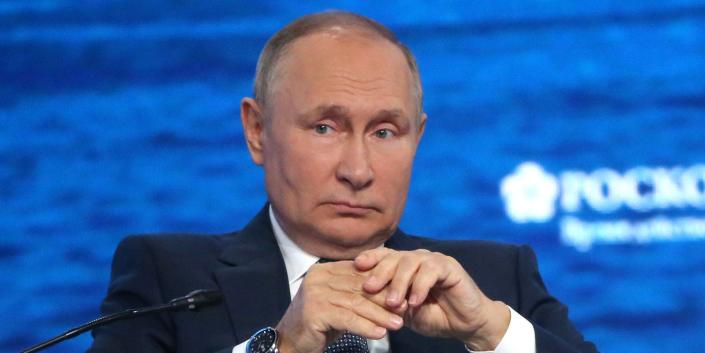
-
The head of the European Commission said that the EU should have listened to warnings about Putin.
-
Some EU and non-EU countries had said “for years that Putin would not stop,” Ursula von der said.
-
She called for the bloc to reduce its energy dependence on Russia even further.
A top European Union leader said that the bloc should have heeded repeated warnings about President Vladimir Putin.
Ursula von der Leyen, president of the European Commission, spoke about Russia’s invasion of Ukraine during an annual state of the union speech on Wednesday, saying: “One lesson from this war is we should have listened to those who know Putin.”
Those warnings came from many of the bloc’s own members, as well as from non-EU countries in central and Eastern Europe, she said.
She identified Ukraine, Moldova, Georgia and the Baltic countries, many of which neighbor Russia or were once part of the Soviet Union.
The warnings also came from within Russia itself, she said, paying tribute to the slain Russian journalist Anna Politkovskaya, among other dissident journalists.
“They have been telling us for years that Putin would not stop,” von der Leyen said.
Russia’s invasion of Ukraine is the largest military mobilization in Europe since WWII.
In the face of Ukraine’s increasingly pro-European leanings, Putin repeatedly signaled, using convoluted arguments, that he considered Ukrainians and Russians to be “one people.” It prompted observers such as the Atlantic Council, back in 2021, to warn of his “imperial ambitions.”
Putin then backed that up with force in February 24, sending his tanks across the border and beginning a war that is now seven months old.
The war plunged the EU into major — and extraordinarily expensive — reckoning over its dependence on Russian energy.
In her speech, von der Leyen noted that the countries which had warned about Putin “acted accordingly,” investing in renewable energy and liquid natural gas terminals.
But around 40% of the EU’s natural gas consumption came from Russia in 2021, according to the International Energy Agency.
“Today, it’s down to 9% pipeline gas,” she said. Energy demand is worsened by climate change as well, she said.
The issue has in part been forced by Russia’s decision to the flow to gas to Europe through the Nord Stream 1 pipeline, an issue that Russia initially attributed to repair problems, but which Putin has now made clear is conditional on the removal of war sanctions.
Other EU officials have also said the bloc should have acted earlier on Ukraine, and heeded warnings from Ukraine and other nations.
Josep Borrell, the EU’s high representative for foreign affairs and security policy, said earlier this month that the EU should have begun training Ukrainian troops a year ago, when some member states called for it.
“Unhappily we didn’t, and today we regret. We regret that last August we were not following this request, fulfilling this request,” he said.
Read the original article on Business Insider




